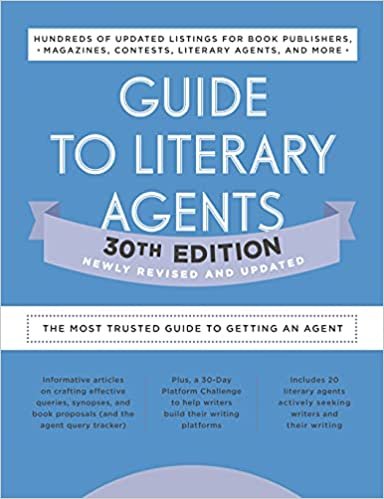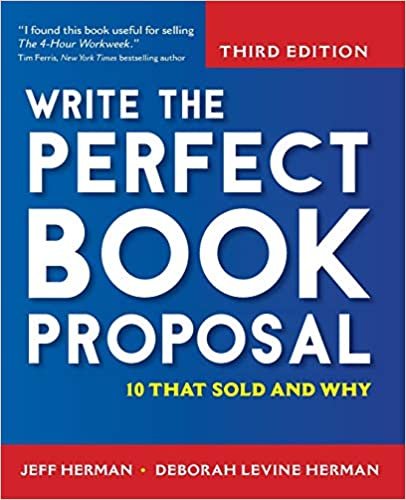Who are the Big 5 Publishers? How to Get a Publishing Deal with a Big 5 Press?
There are many ways to publish a book.
But for many authors, the gold standard, the Ferrari of publishing, if you will, is to land a “Big 5 Publishing Deal.”
Publishing a book with a Big 5 publisher remains a status symbol and an aspirational goal for many authors of fiction, nonfiction, and children’s books alike. The mere thought of a Ferrari is exhilarating, isn’t it?🤩
What is the “Big 5” in book publishing terms, and how do you get a publishing deal with them?
This subject comes up a lot about this in my work as a book publishing coach for authors.
The Big 5 Definition / Who are the Big 5 in the USA?
The term “Big 5” is the publishing industry insider term for the largest trade book publishers in the US.
In the USA, “Big 5” is a term used to refer to the five largest and most prestigious trade publishing companies.
The Big 5 consists of Hachette Book Group, HarperCollins Publishers, Macmillan Publishers, Penguin Random House, and Simon & Schuster.
These publishers, some of them foreign-owned, acquire books written mostly by Americans for Americans—This is a reference to Daymond John’s Fubu slogan here; he has published several books with Big 5 publishers—and are acquired, edited, and published in America. They are part of larger (often international) media conglomerates.
Your manuscript deserves a publishing deal, not another pass.
With my 30-page Nonfiction Book Proposal Template, you’ll find step-by-step guidance for each section—complete with formatting tips and indispensable advice.
Optimize your pitch to captivate agents and publishers, stand out in a crowded market, and secure the traditional publishing contract you deserve.
Download the template now and create a proposal that gets noticed.
Keeping up with the organizational structure of each of the Big 5 publishers is a difficult task.
Each member of the Big 5 (itself part of a larger corporation) is subdivided in ways that are confusing as all get-out.
In simple terms, each member of the Big 5 is subdivided into publishers (publishing groups) and imprints.
These may be legacy brands, independent presses acquired over the years, or new entities created to fill a niche or need or to reward an outstanding editor.
To make matters more confusing, each of the Big 5 publishing houses changes its organizational structure frequently. Acquisitions and mergers are commonplace and imprints are frequently introduced or phased out.
Random House Tower in New York City, US headquarters of Penguin Random House
(Check for yourself, as the information below can change at any time; the examples provided are nonfiction-focused.)
Hachette Book Group is owned by Hachette Livre, a French subsidiary of Lagardère. Under this umbrella are such imprints as Basic Books, Grand Central Publishing, Running Press, and Workman. Here’s the list of Hachette imprints.
HarperCollins, owned by News Corp, is also divided into several groups and publishes such imprints as Amistad, Dey Street Books, Ecco, and anything with “Harper” in the name. There’s a HarperCollins Christian Publishing group as well. See the list of HarperCollins imprints here.
Penguin Random House, the largest of the five, is owned by the German company Bertelsmann. Penguin Random House publishes such imprints as Alfred A. Knopf, Doubleday, and Vintage (within the Knopf Doubleday Publishing Group); Penguin, Putnam, and Viking Press (within the Penguin Publishing Group); Ballantine Books, Bantam Books, and Random House (within the Random House Publishing Group); and Crown Publishing Group and its imprints. The Penguin Random House Christian Publishing Group includes the imprints WaterBrook and Multnomah, among others. Here is a list of Penguin Random House imprints.
Macmillan, owned by the German company Holtzbrinck Publishing Group, includes a number of publishers and imprints—including Henry Holt & Co.; Farrar, Straus & Giroux; Flatiron Books; and St. Martin’s Press, among others. Here is the list of Macmillan publishers.
Simon & Schuster was sold in 2023 by Paramount to private equity firm KKR, which also owns library digital borrowing app OverDrive. It publishes such imprints as Atria, Scribner, Simon Element, and Simon & Schuster. Here is a list of Simon & Schuster’s divisions and imprints.
Getting a traditional publishing contract starts with finding the right publisher.
See your options and find out what they’re looking for.
Get the most up-to-date list of book publishing companies for nonfiction authors in the US—
With or without an agent, find your match.
How to Get a Big 5 Publishing Contract
What you need: an agent, a query, a proposal, a book manuscript (or at least some of it), patience, a large following or indicator of future sales, a clue.
With few exceptions, getting a publishing deal with a Big 5 imprint requires an author (through a literary agent) to submit a query and, if invited, a formal proposal and/or manuscript.
I help authors write and edit nonfiction proposals—it’s one of the things I do as a book publishing coach—and as a successfully traditionally published author myself with a book that resides in 1,000+ libraries, I know that having a sharp proposal is very important. Publishing is competitive!
(Learn about hiring a book proposal coach or editor here.)
Acquisitions editors do not accept unsolicited queries, proposals, or manuscripts.
An agent submits that material on the author’s behalf.
For a cut (typically 15 percent) of the author’s compensation from the publisher, the agent will help the author negotiate any deals related to their book, starting with the initial contract.
(The agent can also help negotiate such things as foreign rights and film adaptations.)
The entire process, from manuscript to publication, could take 12 or 18 months, or even more.
See my other, related article “Questions to Ask a Literary Agent before Signing a Contract.”
If you’re looking for the best advice on how to find an agent or get published, these are the books I have read, trust, and recommend to my nonfiction editing and book coaching clients.
Expect to be ignored if you try to contact an editor directly.
Editors at the Big 5 rarely, if ever, take notice of an author (and then invite the author to have their agent be in touch). Almost never does an author somehow bypass the agent as the gatekeeper and intermediary to get a publishing deal.
If you want to pursue traditional publishing with a Big 5 deal, you’ll not only need an agent to help you. You’ll need to point to past book sales and/or a large following on social media or on an email list.
How large is large? Let’s say 10,000+ is a safe bet. Having some kind of celebrity status or newsworthy name recognition is often a must. Maybe you’re a local or state-known celebrity? A former Olympian?
Having a platform is less critical for debut fiction novelists than it is for nonfiction authors.
It also helps to have the endorsement(s) of a prestigious celebrity, public figure, author, or someone respected in your space.
Pros and Cons of Publishing with a Big 5 Publisher
Disadvantages of Big 5 Publishing
Let’s look at the cons first:
Some would argue that over the years, consolidation in the publishing industry has made the Big 5 less risk-averse, less diverse in their offerings, and more selective. You may not be a priority to your publisher; their resources are not allocated equally.
Advantages of a Big 5 Publishing Deal
Now the pros:
They offer authors name recognition, beautiful cover and interior design, professional editing, a consistent look and feel to their books, established sales channels, widespread distribution, easier access to libraries and major bestseller lists, and (often) an easier path to licensing other rights.
It is more challenging than ever to get a Big 5 deal, but it remains an aspirational goal and a status symbol for many authors of fiction, nonfiction, and children’s books alike.
Big 5 Alternatives for Authors
There are many large publishing companies out there that aren’t Big 5 publishers but still sell a lot of books and have excellent name recognition.
Consider such publishers as W. W. Norton, Bloomsbury, Sourcebooks (53% of which is owned by PRH, as a matter of fact), and Wiley (of For Dummies fame), among others.
There are university presses, which are especially great for professors and research-oriented books.
Read this if you’re thinking of publishing with a university press and visit the Association of University Presses website and YouTube channel.
There are small independent presses, which carve out niches in specific areas.
All of these publishers for nonfiction books can be found on my updated list of traditional publishing companies.
And there are many authors who prefer (and rightly so) the creative control, the quicker pace, and the higher profit potential of self-publishing.
Final Thoughts on Big 5 Publishing
If you have your eyes fixed on the shiny Ferrari—if you’re thinking “big publisher or bust”—you may be missing out on other great ways to share your book with the world.
But if trying to score a Big 5 deal is for you, you may find the status you crave. At least now know you know the basics to get you started!
➡️See book coaching services for traditional publishing or working with a nonfiction editor on your book proposal, sample chapters, or book manuscript.
➡️Read about the 15 Steps in the Self-Publishing Process
Snag yourself a copy of:
An up-to-date List of Nonfiction Publishers in the US
Guide to Literary Agents 30th Edition: The Most Trusted Guide to Getting Published by Robert Lee Brewer
Write the Perfect Book Proposal: 10 That Sold and Why by Jeff Herman and Deborah Levine Herman
Jeff Herman’s Guide to Book Publishers, Editors, and Literary Agents, 29th Edition: Who They Are, What They Want, How to Win Them Over by Jeff Herman





